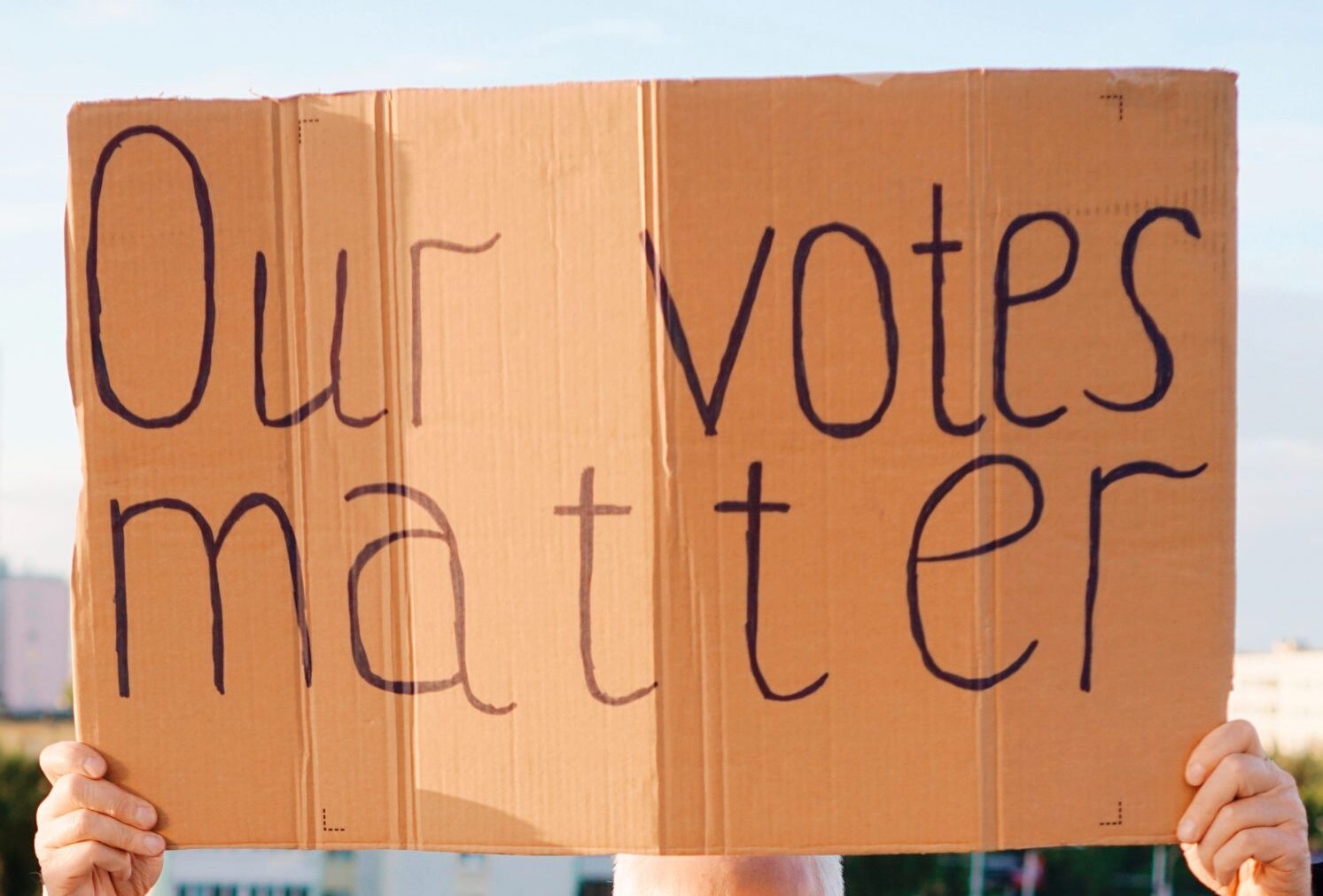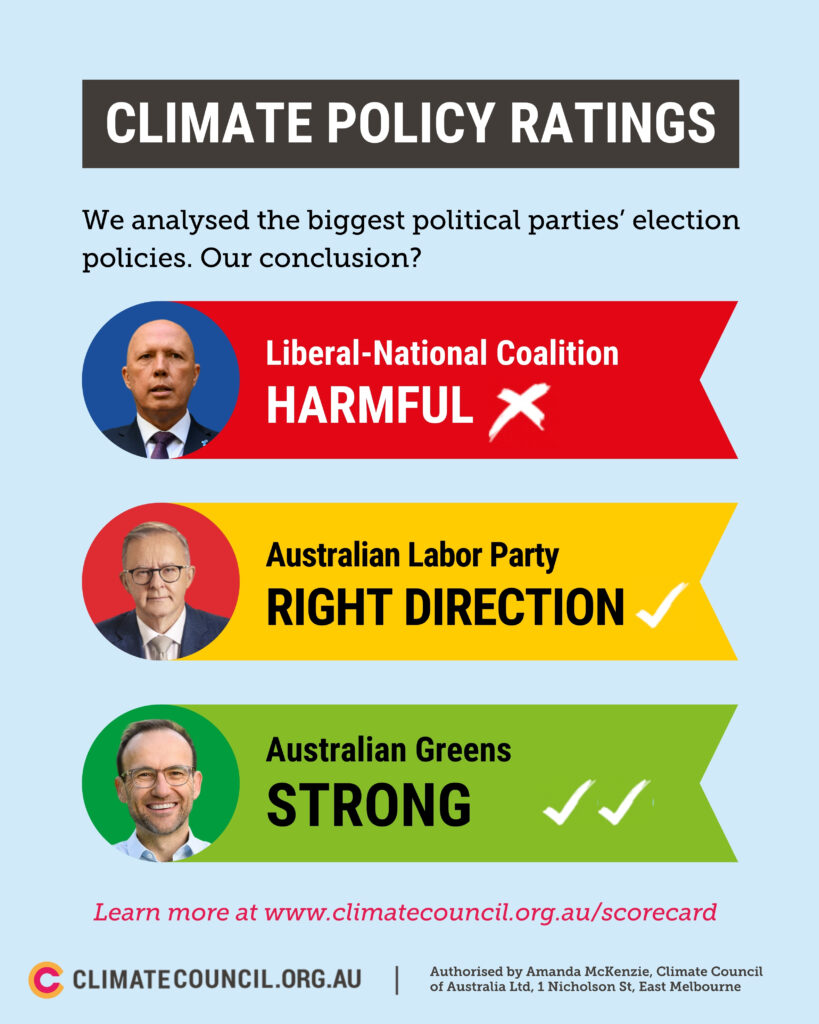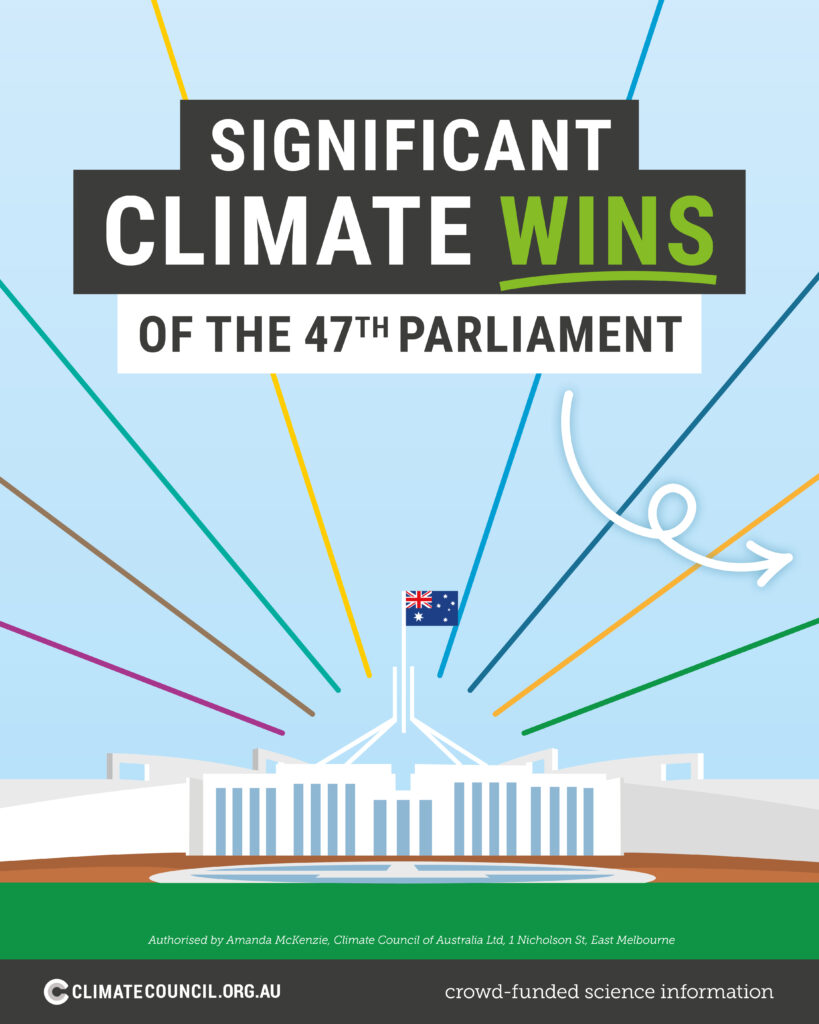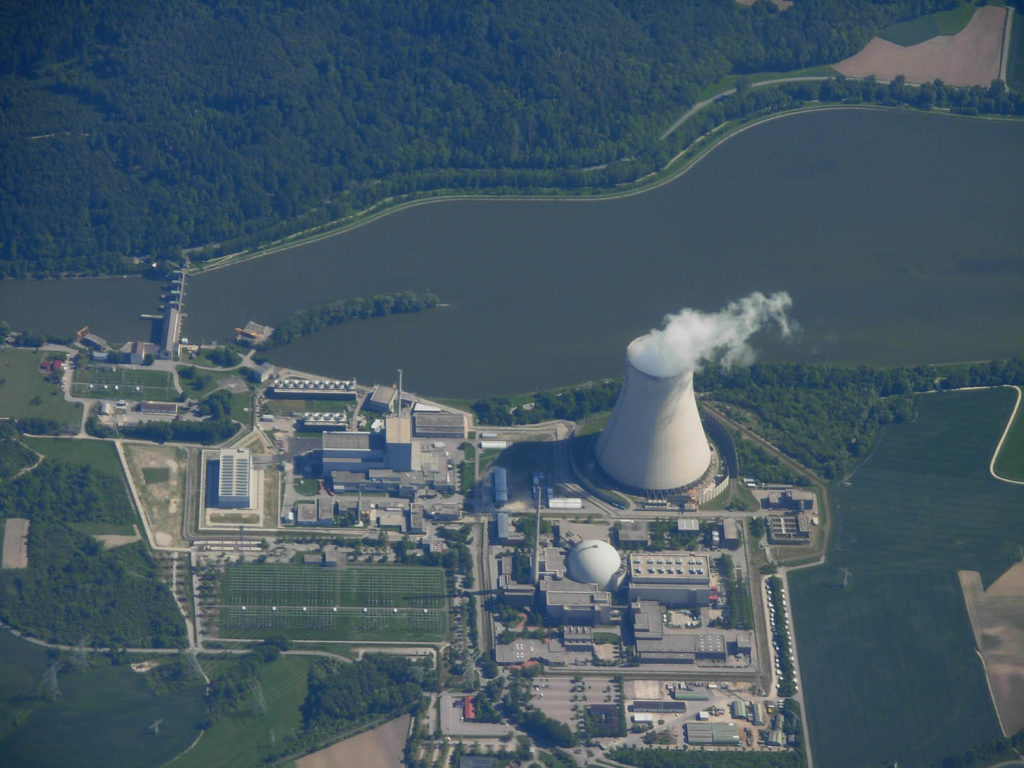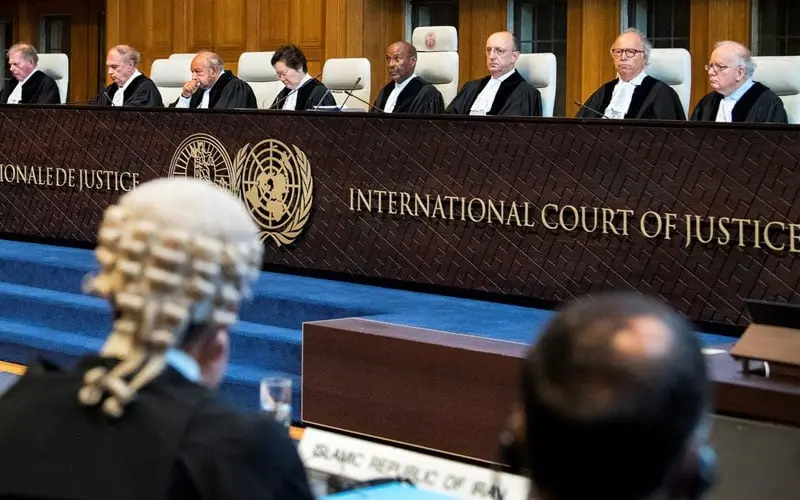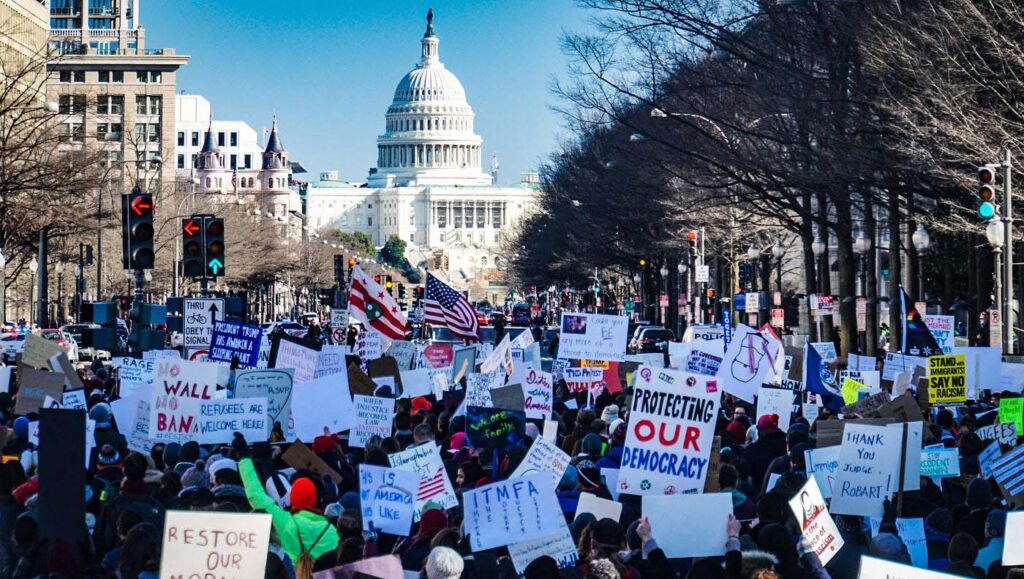With the 2025 Federal Election just around the corner on May 3, major parties, minor parties and With the 2025 Federal Election just around the corner on May 3, major parties, minor parties and independent candidates are vying for your vote.
The next Australian government will take us most of the way to 2030, and shape our climate trajectory for decades to come. Every bit of climate pollution we avoid by burning less coal, oil and gas will help create a safer future for our kids.
In 2022, Australians voted for climate action. This year, climate change is still a top concern for voters. The problem is, with so much conflicting information, it can be hard to spot real climate action amongst all the slogans. To help out, we’ve put together a list of questions to ask about a party or candidate’s climate policies, to help you dodge spin, fluff, and dodgy accounting.
To help make your job even easier, we’ve spent the last few months looking at the major parties’ and candidates’ election policies and track records on climate change, and pulled this information together, all in the one place.
If the answers to the following questions are YES, this could be a sign that a party or candidate is serious about action on climate change:
1) Does their policy acknowledge that we need to get on with cutting climate pollution (i.e. reducing our carbon emissions) now?
The science is clear: we need to get on with cutting climate pollution now to protect Australians from worsening climate disasters. While most politicians agree that we need to act on climate change, the pace of change really matters. Every fraction of a degree of avoided warming in the near-term will be measured in lives and livelihoods saved, and a safer future for our kids.
This means we need to cut climate pollution as soon as possible, and get our pollution as low as possible, as we work towards net zero. In fact, the total amount of climate pollution we release over time matters just as much as when we reach that magic ‘net zero’ target. In other words, how we get there matters just as much as the destination.
The science tells us that, to do our fair share to cut climate pollution, Australia needs to reduce climate pollution by 75% on 2005 levels by 2030, and get to net zero by 2035. Good climate policies should be as close as possible to this goal, with targets that get our climate pollution down as much as we can in the short term, and get us on track for net zero as soon as possible.
2) Does their policy include evidence-based, real climate solutions, across the economy?
Credible climate policies need to promote real solutions, not false ideas that just delay the action we need. The solutions we’re prioritising today should be the ones that we know will cut climate pollution quickly, like wind and solar backed by big batteries and hydro, and electric vehicles, bikes, and shared transport. So how do you pick out a real climate solution? Here’s a few tips:
- Real climate solutions cut climate pollution today, or in the very near future – think the next five years. We need to prioritise the many great solutions that are already at our fingertips. Solutions that will take decades – like nuclear energy – are too little, too late.
- Real climate solutions don’t include new or expanded coal, oil or gas developments. Some false solutions claim to make these polluting fuels ‘clean’ (like carbon capture and storage), or claim we can keep using them while relying on offsets elsewhere. But the science is clear: we can’t expand fossil fuel development if we are to avoid the worst impacts of climate change.
- Real climate policies are part of a plan to get all climate pollution down across the economy. The biggest sources of climate pollution in Australia are power generation, transport (mostly cars, utes and trucks), and industry (mostly mining, coal and gas extraction, and heavy industry like smelters). Parties and candidates need to have climate policies that deal with at least these areas. These policies should be underpinned by legislated climate pollution targets, which give certainty and clarity to industry and across government.
3) Is their policy matched by a strong track-record of real action on climate change?
It’s not enough to just talk about climate change: politicians and parties need to back it up with real action. Make sure that any party or candidate you’re thinking of voting for has used their time in parliament to vote on positive climate action, and pushed for better climate policies.
We know that’s a lot of homework, which is why we’ve carefully reviewed the track record of our political parties and independents in the last parliament in Climate crossroads: Progress, politics and a pivotal election.
Let’s vote like our lives depend on it – because they do.
In the first months of 2025, communities across Australia have experienced several devastating extreme weather events, made more severe and damaging by climate change. Tropical Cyclone Alfred hit many communities in Queensland and New South Wales that have been battered by repeat disasters in recent years – being forced to clean up the mess of climate pollution again and again and again. Fires in Victoria and Tasmania burned across hundreds of thousands of hectares of land, including homes, farmland and invaluable wilderness and world heritage areas.
Climate pollution from the burning of coal, oil and gas is driving more ferocious extreme weather events like these. They give us just a glimpse of what is to come if we don’t slash climate pollution as fast as we can, while also preparing our communities and infrastructure for the disasters we cannot avoid.
It’s more important than ever to analyse the details in order to recognise, reinforce and repeat the good, and call-out (and stop) the bad.
I’m still not sure which policies would really cut climate pollution!
We know it’s confusing – that’s why this election, we’re keeping tabs on the big climate policies being proposed across all sides of politics. If you’d like to see which of our biggest political parties support action on climate change, check out our analysis here.
Help us get the word out!
We’ve created a series of downloadable posters showing how the different parties stack up on climate this election. Print them at home and pop them in your window, on a community notice board and anywhere else that shows your community exactly who – and what – we’re being asked to vote for this election (just check you’ve got permission first!).
We’ve also created a suite of social media content for you/your organisation to download and share amongst your networks. Click here to see our full social media pack for assets, suggested captions, and more!
Climate Council is non-partisan and advocates for evidence-based policies that will progress science-aligned climate action.
Authorised by Amanda McKenzie, Climate Council of Australia Ltd, 1 Nicholson St, East Melbourne.

